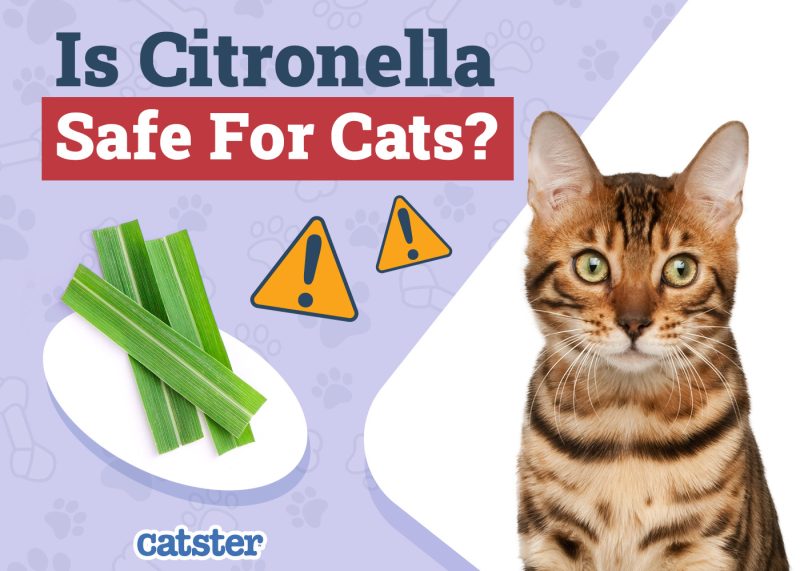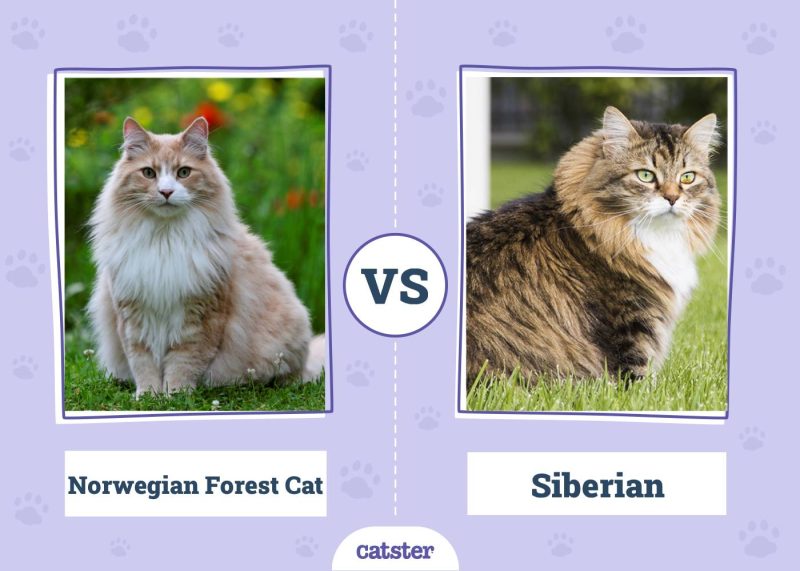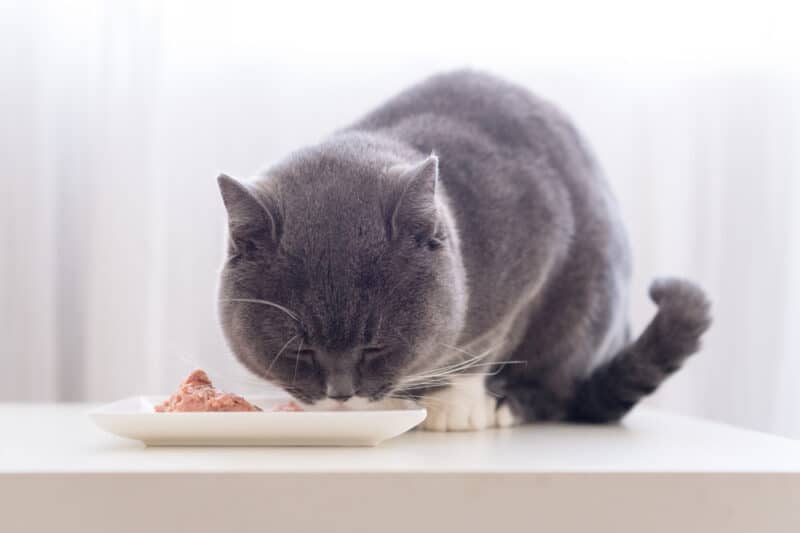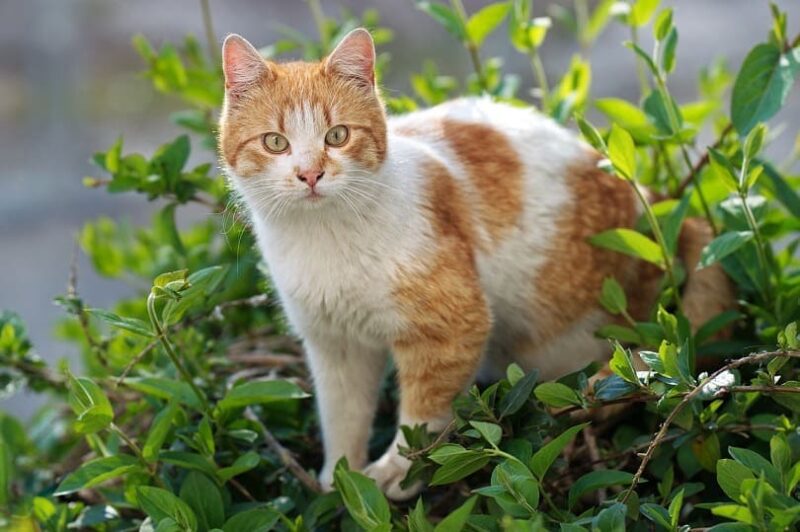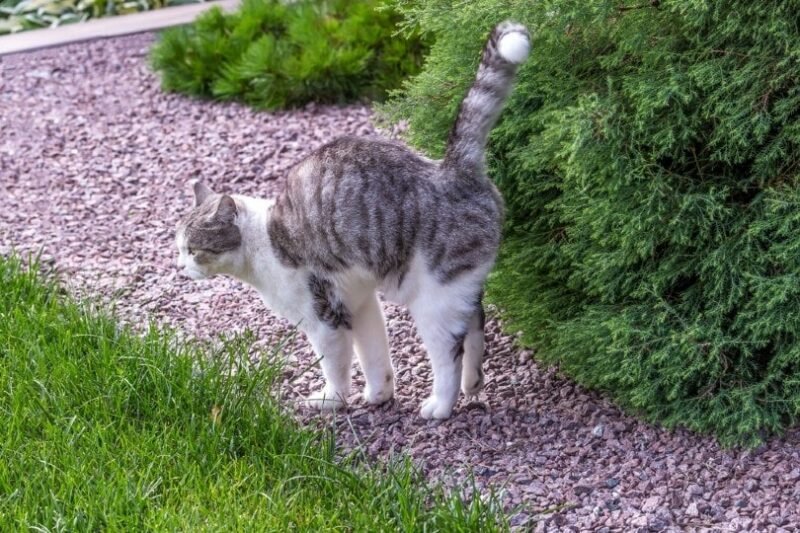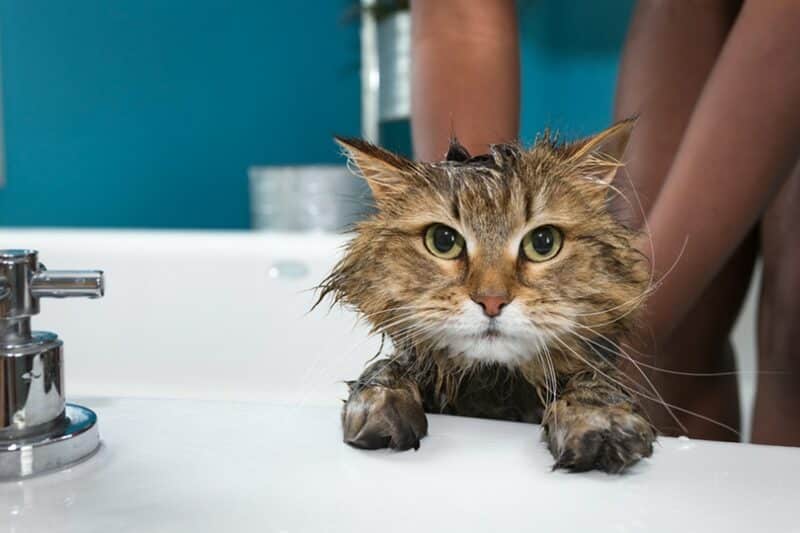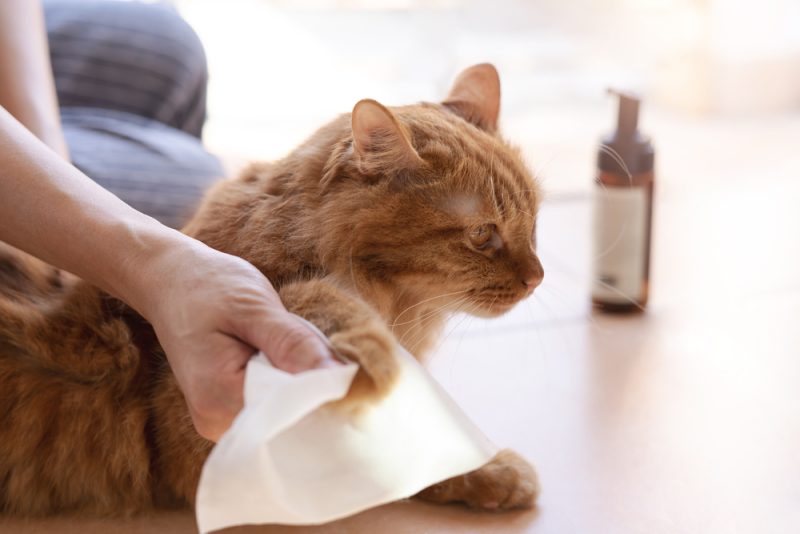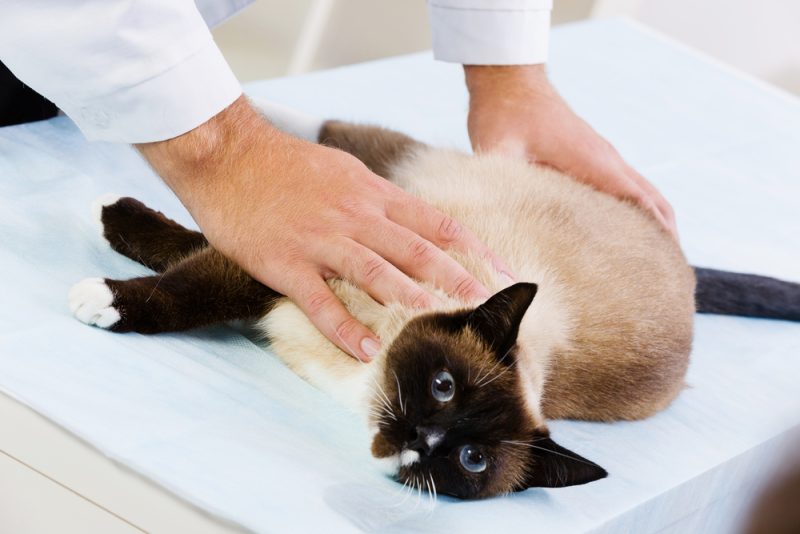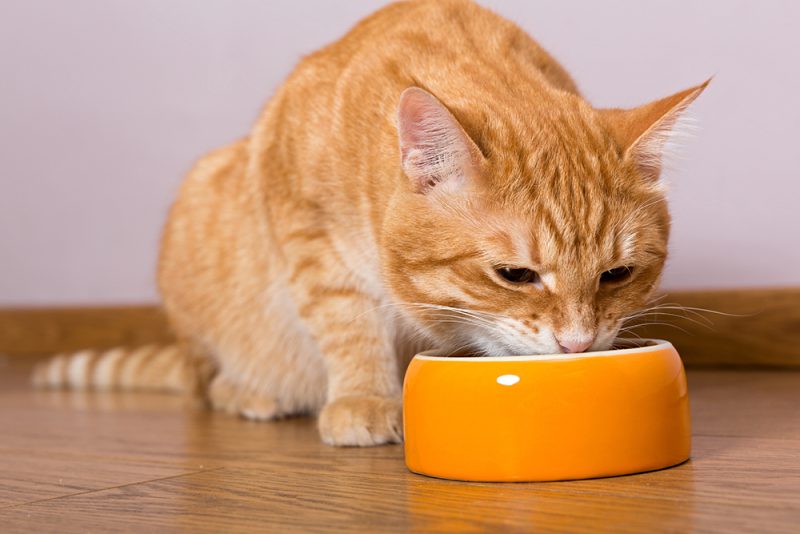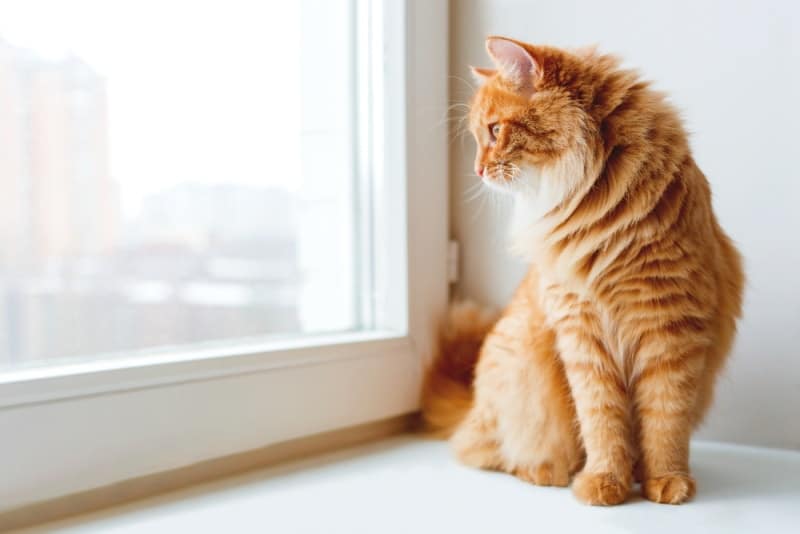In this article
Citronella is an excellent insect repellent, and its fresh citrus scent can be pleasant to have around our houses too. But many substances that we use on a daily basis can have the potential to harm our feline friends. Is citronella on that list?
All citronella products should be treated with caution around cats, as many of them are dangerous for our feline friends.

Is the Citronella Plant Safe for Cats
The citronella plant comes in two varieties: Cymbopogon nardus and Cymbopogon winterianus. These perennial grasses are native to Asia and have been used for hundreds of years as an insect repellent.
- Reducing fevers
- Muscle relaxant
- Anti-bacterial
- Anti-inflammatory
- Anti-fungal
- Relieving migraines
Citronella plants themselves won’t repel insects; it’s only once the oils are extracted that they will be effective.
Citronella plants should be safe to keep in the garden around your cats, but we’d recommend planting them in areas that your cat doesn’t frequently use.
Sometimes, a variety of geranium is sold as a “citronella geranium,” but these are not a true citronella. They just share a similar citrus scent.
Citronella geraniums, scientific name Pelargonium cv. Citrosa, are toxic to cats, so care should be taken if you do have these in your garden.
If you need to speak with a vet but can't get to one, head over to PangoVet. It's an online service where you can talk to a vet online and get the advice you need for your pet — all at an affordable price!

Citronella Candles & Torches
Candles and garden torches containing citronella oil are popular for warding off insects on those long summer nights when we love to eat outside. Should you be worried about using these around your cat?
If you’re using your candle outdoors, in an area where your cat doesn’t usually spend time, then they should be safe enough. In any case, your cat may decide to stay away if they dislike the citrus smell.
Burning citronella candles indoors isn’t recommended if you have cats, as the fumes will concentrate within a smaller area.
Garden torches can also be safe if used with caution. These can contain higher concentrations of citronella than the candles, so try to keep them away from your cat when and where possible. If your cat walks through the fumes, it could cause breathing difficulties.
If the fluid from a torch spills, make sure your cat doesn’t breathe in or ingest the fumes. They can cause gastrointestinal upset if ingested. If your cat gets some on their skin, it can cause irritation or even chemical burns.

Citronella Essential Oil
All essential oils, including citronella, are toxic to cats. They’re rapidly absorbed by the cat’s skin or orally. The problem then is that cats cannot metabolize and break down the essential oils.
The signs of essential oil poisoning in cats can differ depending on the oil but can include:
- Vomiting
- Drooling
- Tremors
- Ataxia (wobbling)
- Respiratory distress
- Low heart rate
- Low body temperature
- Liver failure
We wouldn’t recommend using essential oil diffusers with any type of oil around cats.

Safer Alternatives
If you’re looking for an insect-repellent plant for your garden that’s safer than citronella, then the following are all good options:
- Catnip (particularly popular with cats, of course!)
- Basil
- Peppermint
- Lemon balm
- Rosemary
Cat Repellent
Citronella is sometimes recommended as an effective cat repellent. While it’s true that cats don’t like the smell, intentionally using a substance with known toxicity to cats is, in our opinion, reckless and irresponsible.


Wrapping It Up
While the citronella plant itself is pretty safe to keep in the garden, any products made with the extracted oils should be treated with extreme caution around your cat.
Citronella essential oil is toxic to cats and can cause a nasty and potentially deadly reaction if your cat is exposed to it in large concentrations.
Burning the occasional citronella candle in a well-ventilated area like your garden will likely be safe enough. But using citronella essential oil in a diffuser around your home is definitely not recommended.
Our cats are sensitive creatures and can have reactions to products that we might think of as being safe. If your cat ever exhibits any signs like the ones we listed above, don’t hesitate to call your vet.
See also:
- Is a Humidifier Safe for My Cat? Safety Concerns & Tips
- How to Keep Ants Out of Cat Food (Quick & Simple)
Featured Image Credit: rawf8, Shutterstock
